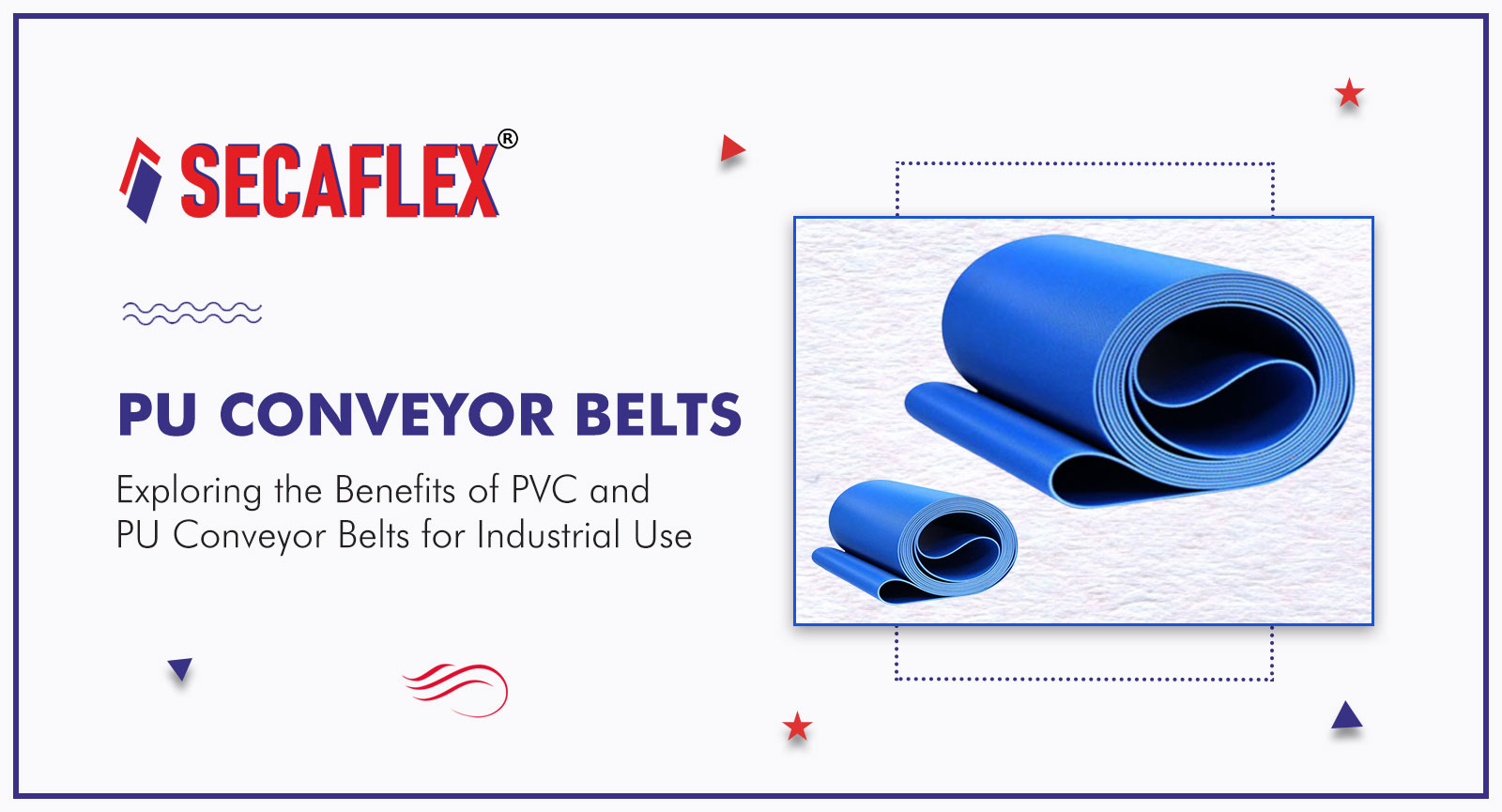- + 91-9167662789
- care@dktee.com

June 19, 2024

In the realm of industrial manufacturing and logistics, conveyor belts play a crucial role in enhancing efficiency, productivity, and safety. Among the various types available, PVC (Polyvinyl chloride) and PU (Polyurethane) conveyor belts stand out as popular choices for their unique advantages and versatility across different industries.
PU Conveyor Belts:
These conveyor belts offer a broader spectrum of advantages, making them the go-to choice for a wider range of industrial needs.
Superior Abrasion Resistance: PU boasts exceptional resistance to wear and tear from abrasive materials like rocks, gravel, and metal parts. This makes PU conveyor belts ideal for heavy-duty applications in industries like mining, construction, and recycling.
Flexibility: Unlike their PVC counterparts, PU belts offer greater flexibility, allowing them to conform to curved surfaces and navigate tight corners within a conveyor system. This versatility makes them perfect for applications where product handling requires intricate maneuvers.
Temperature Resistance: Some industrial processes involve extreme temperatures. PU belts can withstand a wider temperature range compared to PVC belts, making them suitable for applications involving hot or cold materials.
Low Noise Operation: If noise reduction is a priority in your workplace, PU conveyor belts are the answer. They create significantly less noise than PVC belts during operation, contributing to a quieter and more pleasant work environment.
Food-Grade Safety: For applications involving direct contact with food items, PU belts are the clear winner. They are manufactured with FDA-approved materials and meet stringent hygiene standards, making them perfect for the food processing and pharmaceutical industries.
PVC Conveyor Belts:
A perennial favorite in industrial settings, PVC conveyor belts offer a compelling combination of affordability and functionality. They are renowned for their:
Durability: Woven with high-tensile polyester cords and coated with PVC, these belts can handle substantial loads without succumbing to wear and tear. This translates to a longer lifespan and reduced replacement costs, keeping your production lines running uninterrupted.
Chemical Resistance: Many industrial processes involve exposure to chemicals. The good news is, that PVC belts exhibit excellent resistance to a wide range of chemicals, including acids, alkalis, and oils. This makes them ideal for applications in the chemical processing, food and beverage, and pharmaceutical industries, where accidental spills or contact with cleaning solutions are a possibility.
Easy Maintenance: Keeping your conveyor system clean is crucial for optimal performance and hygiene. PVC belts have a smooth, non-porous surface that resists the buildup of debris and makes cleaning a breeze. They can be easily washed down with water and detergent, minimizing downtime for maintenance.
Choosing the Right Belt for Your Needs
Both PVC and PU conveyor belts offer distinct advantages, and the optimal choice for your application depends on your specific requirements. Here’s a quick breakdown to help you decide:
Opt for PVC belts if: You require a cost-effective solution for handling non-abrasive materials in environments with potential chemical exposure. Easy cleaning and maintenance are also priorities.
Choose PU belts if: You deal with heavy-duty, abrasive materials or require flexibility for intricate conveyor systems. Temperature resistance, low noise operation, or food-grade safety are crucial factors.
Conclusion:
PVC and PU conveyor belts are the workhorses of the industry, playing a vital role in keeping production lines running smoothly. By understanding the unique strengths of each type, you can make an informed decision and ensure your conveyor system delivers optimal performance, efficiency, and cost-effectiveness for years to come. Remember, these belts are the backbone of your material handling, so choose wisely!

DKT Engineering Enterprises
DKT Engineering Enterprises has vast experience in manufacturing conveyor belts in India. We are providing high quality products to our clients Since 2010.
